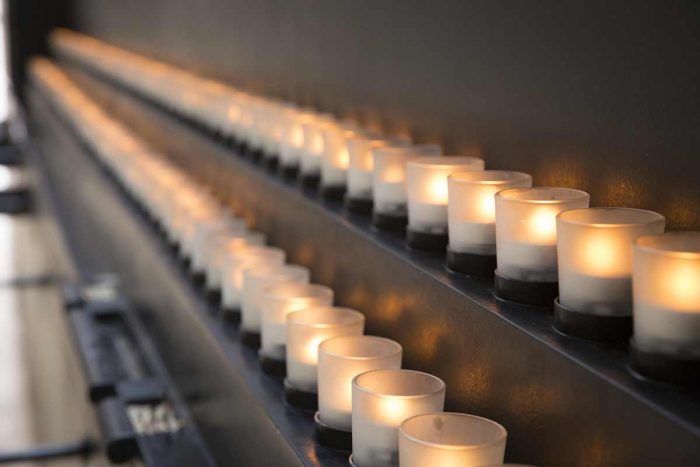D. None of the Above: Celebrating the life of a holocaust survivor
By Daniel Dunaief

He was a part of my wife’s family’s inner circle for years. He appeared at summer gatherings and at significant family events and celebrations.
With his white hair, his signature smile and a Polish accent that seemed as fresh in each conversation as it likely was the first time he arrived in the United States, Carl wandered in and out of conversations and rooms, often smiling and always listening.
He seemed as comfortable in his own skin as anyone I’d ever met, paying close attention to his wife, interacting with his children and grandchildren and soaking up life the way everyone around him soaked up the warm rays of the sun.
Carl watched one day almost 20 years ago when my daughter got too close to the pool’s edge, falling in before she could swim. I immediately jumped off the diving board and brought her back up, where, as I dried her off, she protested that it took too long for me to get her.
When my daughter felt comfortable and confident enough to walk away from me, Carl waited for me to make eye contact.
“That’s what you do when you’re a father,” he smiled.
I nodded and sighed while my blood pressure and pulse returned to normal.
Several times over the years, Carl and I sat next to each other, sharing buffet-style meals of chicken kebobs, pasta, and filets.
Carl didn’t have the numbers tattooed on his arm, but I knew some of the story of his life. I didn’t want to bother him or upset him with a discussion of what was a painful and difficult period.
Once, when we were alone inside a screened-in area, I raised the topic.
“Hey, Carl, I understand you survived the holocaust,” I said.
When he looked me in the eyes, he narrowed his lids slightly, processing what I said and, likely, trying to figure out whether he wanted to talk.
“It’s okay,” I said, immediately backing off. As a journalist, I have a tendency to ask questions. I recognize, however, the boundaries that exist during social interactions and with family and friends. I wanted to speak with him to hear about what had been an unspoken part of his life.
“Yes, I survived,” I said.
“How? Where?”
“In the woods,” he said. “I lived in the woods when the Nazis came.”
He described how he was so hungry that he ate leaves, bugs and bark. That, however, was far preferable to being caught by the Nazis, who had murdered the rest of his family. Carl had been a teenager when he escaped to the woods, avoiding Nazi guards who were always searching for people they deemed enemies and who they readily killed.
Surrounded by a collection of other people who might, at any given time, vanish forever, Carl survived for several years, emerging at the end of the war to try to restart a life shattered by violence and cruelty.
After a brief description of his experience, he told me how important he felt it was that people study the specifics of World War II and understand what really happened to him, his family and people in so many other countries. It angered him that people tried to ignore a history that took so much from him.
All those years later, Carl seemed so easy going and relaxed, so prepared to laugh and smile and to enjoy another bite of lunch or dinner.
Carl recently died. I’m sorry for the loss to his family. I’m glad to have known him and to have shared a few meals, a few smiles and a few stories. All those days, months and years of life, like initials carved into a tree, showed that he was, indeed, here and, having seen his family react and interact with him, that his life had meaning.







